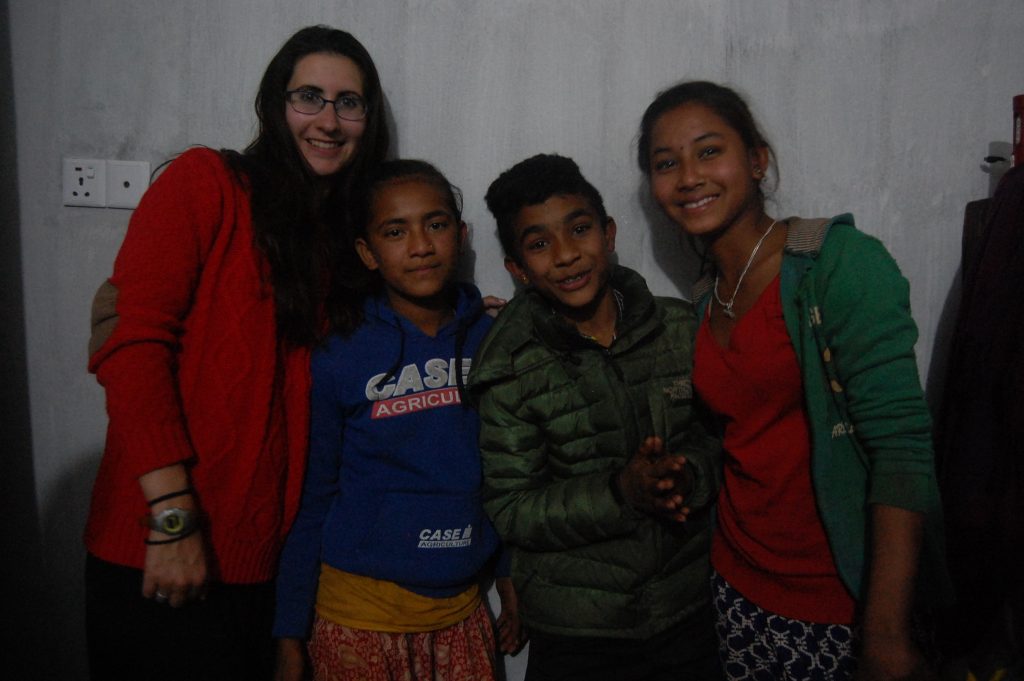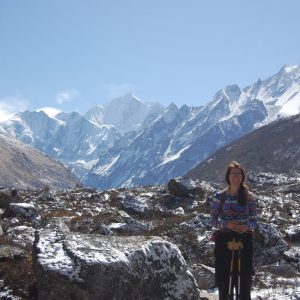The thing I am most proud of is one that I have a hard time articulating. When I tell people about it, I can tell they don’t really get it. So maybe writing it down will help.
About six months ago, during Nepal’s first election in over twenty years (an election that was won at the cost of the bloody civil war), I talked with my students about the barriers women face when they’re voting. For many women in Nepal, this election was the first one they’d ever voted in, and it was rightly a big deal. However, for women who couldn’t read and write, it would be very difficult to vote.
I discussed with my students what it would be like to be unable to read. How easy it would be to be taken advantage of. How vulnerable we would be. I asked them to talk to their mothers and grandmothers about what it was like growing up without being able to go to school, and to write a paragraph about it.
They did much more than that.
Two months later, I sat in a candle-lit, one-room house, in a village two hours from my own. There were pieces of paper taped to the wall, ready to be written on, serving as a makeshift blackboard. There were sixteen women seated on the floor, pencils and paper in hand. Standing at the front of the room, armed with colorful drawings of the Nepali alphabet were four teenagers.
“We’re going to review “D, E, F and G today,” the first teacher, my twelve-year-old student Nisha announced.
The women wrote the letters carefully on their pieces of paper as the teenagers walked around and corrected them. “The D curves to the left, grandma,” one said, drawing on the paper to demonstrate.
My students had started their own school, a women-only class that meets every evening for two hours. My students had saved up to by notebooks and pencils that they gave to the women who attended the class. A thirteen-year-old convinced her father to donate her house every night for the purpose. The “teachers” have a rotating schedule, where they write their own lesson plan (covering everything from literacy to environmental issues). They teach in teams of four, each team teaching two nights a week.
During the course of the evenings, the women learn different things, but they always end the same way: a group dance. One of the grandmothers always starts the singing, and soon everyone is pounding the beat on the floors, and joining hands to dance. A woman grabbed her friend, and soon everyone was swinging around. The class finished with a big bone-crushing group hug.
It’s sometimes easy to forget how big of a sacrifice those teenagers are making. They had to convince their community to support the school and battle the mentality that old women can’t learn to read. They get up at 4 am, taking care of animals and cooking breakfast before walking up to two hours to school. After school, there’s farm work and cooking dinner. And after dinner, they walk for thirty minutes up to the top of the hill to teach their mothers and grandmothers. Those students in that remote village are the most selfless, dedicated people I’ve ever met.
And I want to support them. I want to ensure that school keeps going. I’m not sure what that looks like yet, but I’m committed to them. If you would like to help and get involved, please let me know.
Here’s a picture of me with three of the teachers one night. My heart is bursting with pride.


